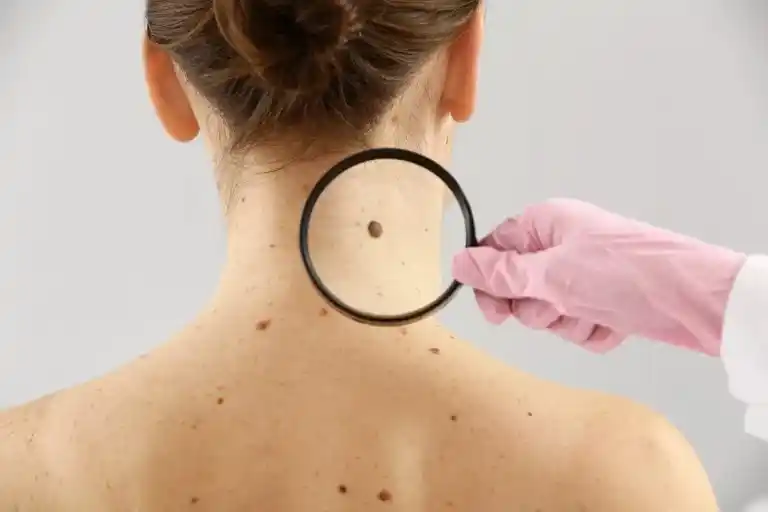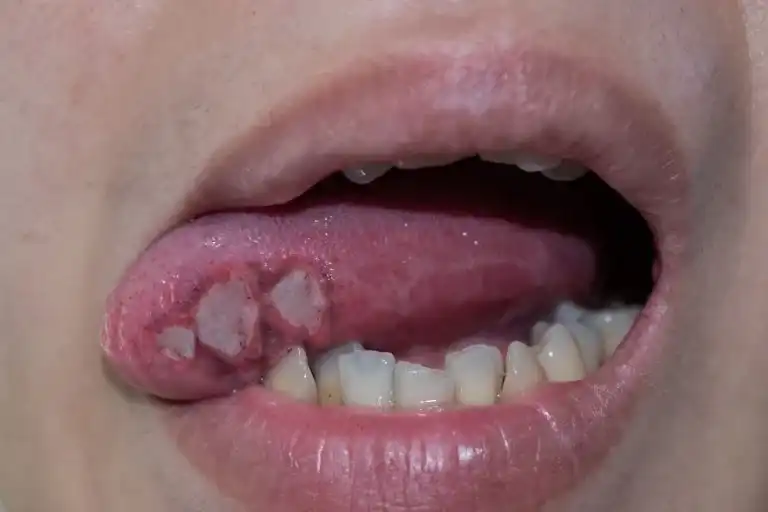Skin cancer is a cancerous condition affecting the skin, causing new bumps or patches and changes in the size, shape, and colour of skin growths. Skin cancer is treatable; therefore, a skin cancer diagnosis can help to prevent the progression of the disease. Skin cancer treatment in India includes skin cancer surgery, chemotherapy or radiotherapy, cryotherapy, and other such cancer treatment modalities. For accurate diagnosis and treatment of skin cancer, visit the top Oncologists at Wockhardt Hospitals, the best skin cancer hospital in India.
Skin Cancer Diagnosis
Skin cancer diagnosis begins after observing changes or new appearance of growths and moles, unhealing scars, and scaly patches of skin. Primarily, a dermatologist examines the skin condition of the patient and also assesses the skin on other parts of the body to look for any changes elsewhere. If the doctor suspects skin cancer, they may recommend a skin biopsy for laboratory testing. The biopsy may reveal whether the skin change is cancerous as well as the stage of skin cancer.
Skin Cancer Treatment
Skin cancer treatment may depend on the type, location, size, and spread of skin cancer. Superficial, small-sized skin cancer may not require invasive treatment other than a simple biopsy to remove the cancerous cells. There are several treatment options available for skin cancer, including:
Cryotherapy
This involves freezing the cancerous skin cells, which slough off on their own after the treatment.
Chemotherapy
A standard cancer treatment, chemotherapy can be applied to kill cancer cells by applying medications directly on the skin (topical administration) or through pills. It may also be administered intravenously if the cancer has spread to other parts of the body.
Radiation Therapy
Another cancer treatment modality, radiation therapy, may be beneficial for killing skin cancer cells using radiation to prevent them from growing.
Photodynamic Therapy
This treatment uses a combination of laser light and drugs to destroy skin cancer cells.
Excisional Surgery
Skin cancer surgery may be done to remove a portion of the skin containing the diseased cells and preserve the surrounding areas as much as possible.
Mohs Micrographic Surgery
Alternatively known as a complete margin assessment surgery, the Mohs micrographic surgery technique is one of the common skin cancer surgery procedures which involves removing a visible tumour along with surrounding parts of the skin around the edge of the tumour. This procedure is typically performed for larger skin tumours, especially those located in the head and/or neck region, and also for recurrent cancer in the same place. Using this excisional method, each fragment of the removed skin is examined under the microscope to ensure that the entire diseased cells have been removed.
Curettage & Electrodesiccation
A sharp, spoon-shaped instrument known as a curette is used to remove any skin lesion and later treat the area with an electric current to destroy any remaining cancer cells and control bleeding. This process is called electrodesiccation.
Wide excision
This procedure involves removing a skin tumour along with the surrounding healthy cells to ensure that all the cancerous tissues are removed from the site.
Apart from these surgical procedures for skin cancer, additional surgical intervention may also be required for reconstructive or adjoining organ/tissue biopsy.
Sentinel Lymph Node Biopsy
This surgical procedure is used to find out if cancer has spread to the lymph nodes. A sentinel node is the first lymph node into which the lymphatic system drains from the site of the tumour. If this sentinel node contains cancer cells it would entail that the cancer has spread and require further treatment, including additional surgery.
Reconstructive Surgery
Skin cancer often leaves a scar on the skin, which requires a reconstructive procedure as scarring and dents may affect the quality of life of a patient as well as the way they talk or eat. Reconstructive surgery may improve functionality as well as appearance.
What are the Stages of Skin Cancer?
The stage of skin cancer may indicate the severity of the cancer and extent to which the cancer has spread.
- Stage 0: Skin cancer has not spread yet.
- Stage 1: The skin cancer size is 2 cm or smaller.
- Stage 2: The size of skin cancer is between 2 cm and 4 cm.
- Stage 3: The skin cancer has started spreading but not yet reached the lymph nodes. Size can be more than 4 cm.
- Stage 4: The skin cancer has spread to one or more lymph nodes.
When to See a Doctor?
Any noticeable changes on the skin, the appearance of rough lesions, or changes in the shape and colour of existing moles should be checked by a doctor. Although not all skin changes result from cancer, it is better to seek medical attention promptly to avoid complications.
Conclusion
Nearly all skin cancers can be cured if they are detected and treated early, before they have a chance to spread. Skin cancer can also be prevented by taking precautionary measures. Any suspicious skin changes should be checked by a doctor.
Schedule a one-on-one consultation with the top oncologists at the best skin cancer hospital in India – Wockhardt Hospitals, and access a comprehensive range of services for world-class skin cancer treatment in India. Book your appointment with us today.
FAQs on Skin Cancer Treatment in India
Q. What is the cost of skin cancer treatment in India?
The average cost of skin cancer treatment in India can range anywhere between Rs. 10,000 and Rs. 2,50,000.


















